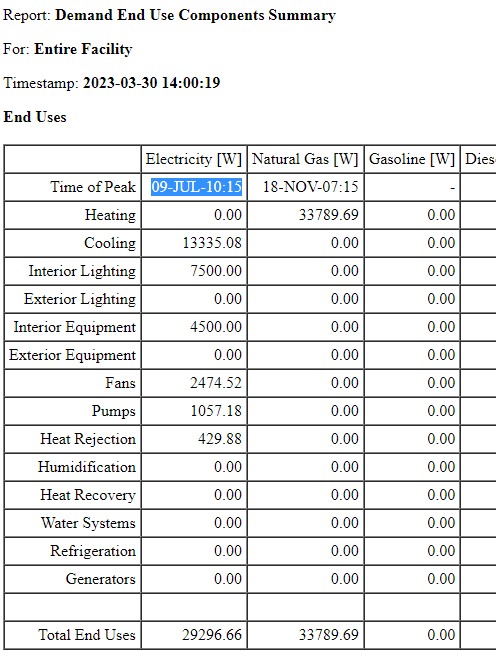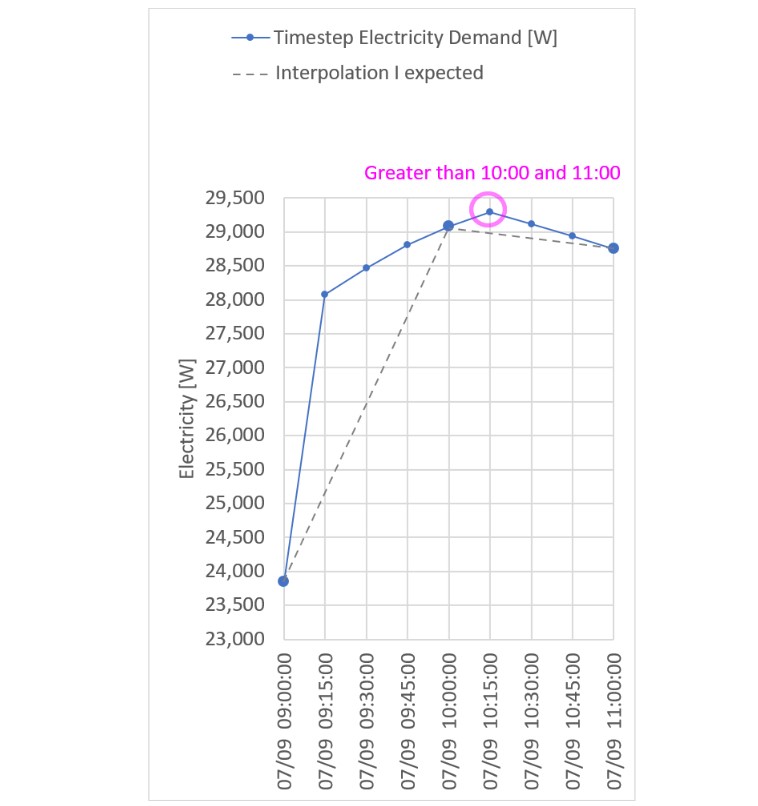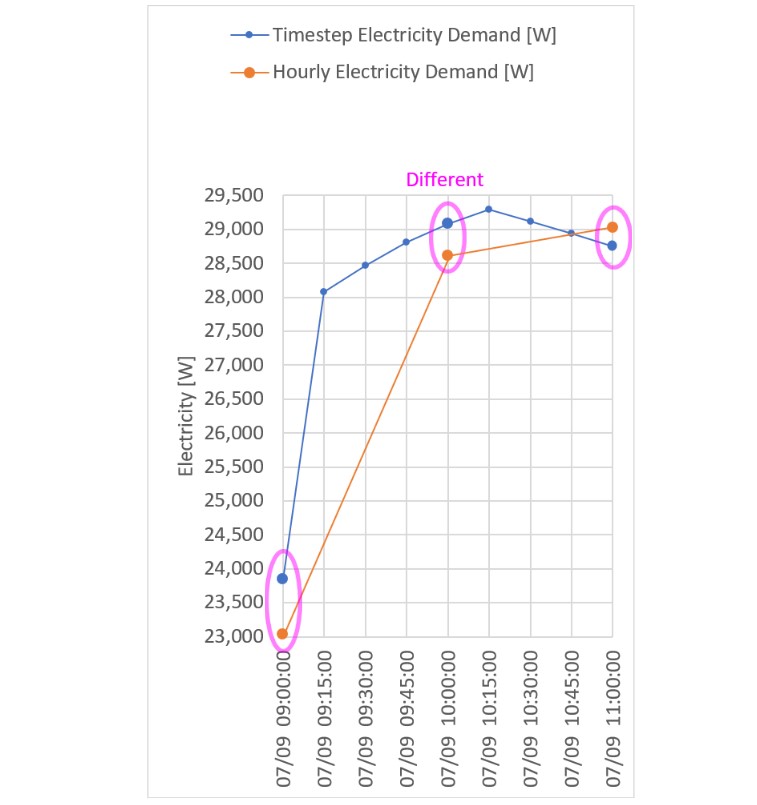Any ExampleFile is fine, but I just use 5ZoneVAV-Pri-SecLoop.idf to explain. Actually, I have two questions.
EnergyPlus reports Demand End Use Components Summary. Time of Peak is a specific timestep (9 July 10:15) rather than hour (9 July 10:00 or 11:00).

I have also output the following Output:Variable objects and manually calculate the total electricity demand for each Timestep throughout the year.
Output:Variable,*,Lights Electricity Rate ,Timestep;
Output:Variable,*,Electric Equipment Electricity Rate ,Timestep;
Output:Variable,*,Fan Electricity Rate ,Timestep;
Output:Variable,*,Chiller Electricity Rate ,Timestep;
Output:Variable,*,Pump Electricity Rate ,Timestep;
Output:Variable,*,Cooling Tower Fan Electricity Rate ,Timestep;
Output:Variable,*,Boiler NaturalGas Rate ,Timestep;
The chart below is an extract of total electricity demand from 9:00 to 11:00 on 9 July.

The dashed line is what I expected. I thought liniear interpolation is applied in EnergyPlus. If that's the case, I know that what is interpolated is such as weather condision and the demand is just a result, but still it's weird to me that the timestep value exceeds the hourly value.
Question 1: Does anyone know why the interpolated Timestep electricity demand can be greater than the Hourly electricity demand?
Besides, I changed Reporting Frequency of Output:Variable to Hourly. So, I got two results: the Timestep result and the Hourly result. I have not changed Timestep which is 4.
I compared the Timestep result and the Hourly result. They are different!

Question 2: Why are the simulation results for every hour different between the Timestep result and the Hourly result?
For this ExampleFile, the difference between the Timestep electricity demand and the Hourly electricity demand is not so large, but for my another model, the Timestep electricity demand is 13% greater than the Hourly electricity demand, which is a huge difference.
The idf files(V22-2-0) and the results are here.
Just answering one of my questions is appreciated.



